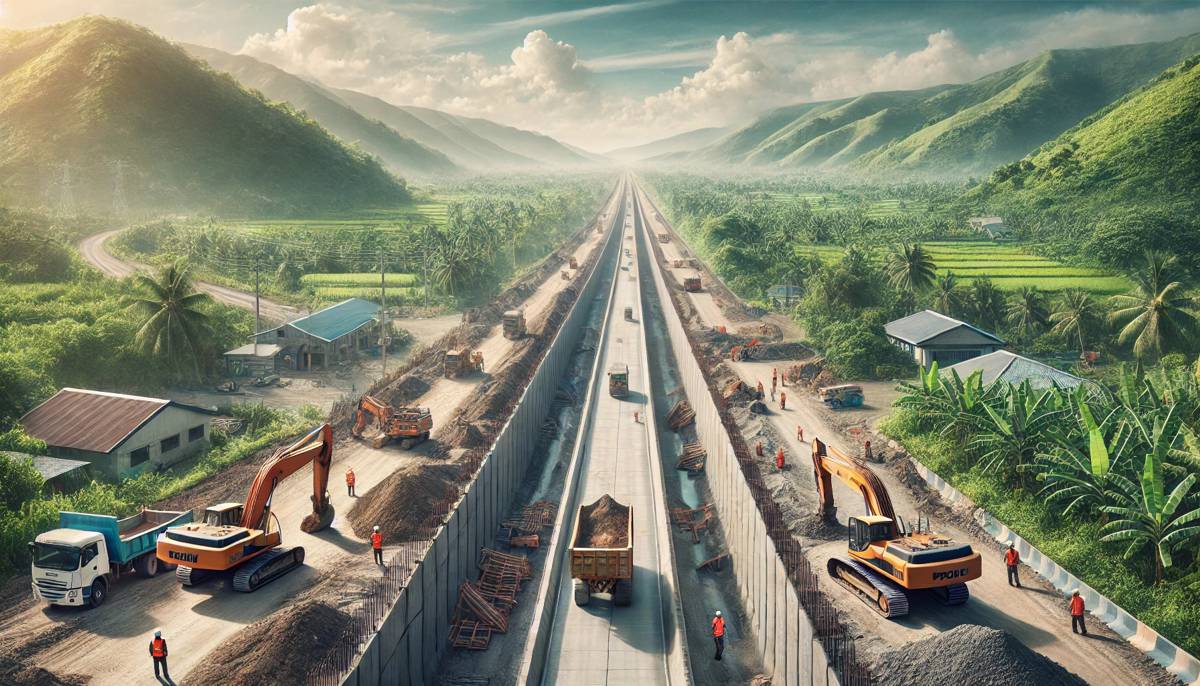Philippines greenlights ambitious Expressway Project with 34-year Concession Deal
The Philippines’ Department of Public Works and Highways (DPWH) has officially signed a Concession Agreement with the SMC TPLEX Extension Infrastructure Corporation (STEIC) for the ambitious Tarlac-Pangasinan-La Union Expressway (TPLEX) Extension Project.
This landmark agreement marks a significant step forward in enhancing the country’s infrastructure and connectivity.
San Miguel Holdings Corporation (SMHC) emerged as the winning private proponent for the TPLEX Extension Project, tasked with the comprehensive responsibility of designing, financing, constructing, operating, and maintaining the expressway. The project, with an estimated cost of PhP 23.4 billion (approximately US$400 million), will be managed by STEIC, a Special Purpose Company established by SMHC.
Project Scope and Objectives
Spanning 59.4 kilometres, the four-lane extension is set to dramatically improve transportation efficiency across the regions. The expressway will connect the Ilocos Region, Central Luzon, and Metro Manila, serving as a vital artery for commuters and goods alike.
This extension, proposed unsolicited by SMHC, includes a 34-year concession period, ensuring long-term operation and maintenance by the private sector.
One of the project’s key benefits is the reduction in travel time between Rosario and San Juan in La Union. Currently, the journey takes approximately 1.5 hours, but with the completion of the TPLEX Extension, this will be slashed to just 40 minutes. This improvement is expected to boost economic activities and ease the daily commute for many Filipinos.
Timelines and Future Prospects
The project is set to be developed in phases, with Segment 1 scheduled for completion before 2028. This phased approach ensures that parts of the expressway will become operational progressively, bringing immediate benefits to travellers and local economies.
This development is not just about reducing travel time; it’s a strategic move to enhance the overall transportation network within the Philippines.
By linking key regions more efficiently, the expressway will facilitate smoother trade and movement, contributing to the broader economic growth goals of the country.
Economic and Social Impact
The TPLEX Extension Project is anticipated to generate substantial economic benefits. By improving connectivity between major regions, it will enhance trade and commerce, particularly in agricultural and industrial sectors. Easier access to Metro Manila will provide rural areas with better market opportunities, boosting local economies.
Furthermore, the project is expected to create numerous jobs during the construction phase and beyond, contributing to the reduction of unemployment in the regions it traverses. This influx of job opportunities will significantly bolster the economic stability of local communities.
Enhancing Safety and Efficiency
With modern infrastructure comes enhanced safety and efficiency. The TPLEX Extension will incorporate advanced engineering standards and safety features, reducing the risk of accidents and ensuring a smoother driving experience.
These improvements are crucial for reducing the high rates of vehicular accidents currently seen on less developed roads.
Environmental Considerations
The project also includes measures to mitigate environmental impacts. SMHC has committed to adhering to environmental regulations and implementing sustainable practices during construction.
This includes proper waste management, minimization of ecological disruption, and efforts to reduce carbon emissions through efficient design and construction methods.
Philippines’ Commitment to Infrastructure Development
The signing of the Concession Agreement for the TPLEX Extension Project underscores the Philippines’ commitment to infrastructure development and public-private partnerships.
With San Miguel Holdings Corporation at the helm, the project promises to deliver significant improvements in connectivity and economic opportunities for the regions it connects.





























